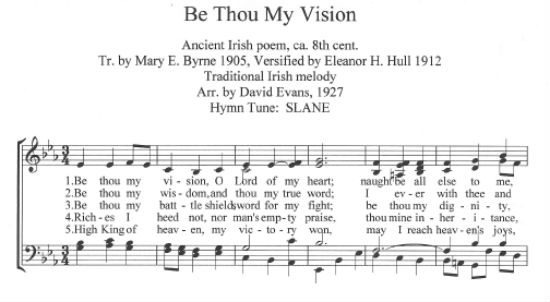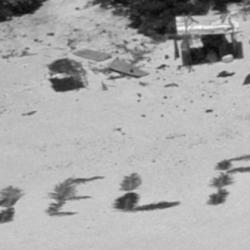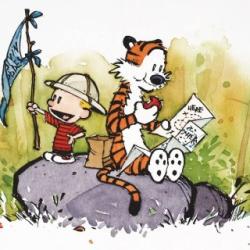Yesterday morning I visited our friendly neighborhood white evangelical mega-church.
We live in Chester County, Pennsylvania, which is one of the suburban counties near Philadelphia that always gets a lot of attention from pollsters and politicos discussing our “swing state.”* And just down the other end of our street is the closest thing our area has to a “mega-church” — a nondenominational church whose large parking lot is filled every Sunday with just exactly the sort of white evangelical suburbanites that those same pollsters and politicos find so fascinating.
So it seemed like a good place to head this morning to find out what sort of message swing-state suburbanites and white evangelicals were hearing on the final Sunday before Election Day.
The service began with a few throat-clearing PowerPoint praise choruses, led/performed by the church’s capable “worship team.” One of the songs had some weird culture-war type overtones — a strange riff on Ezekiel that has the valley of dry bones rising up into an “army,” but this was mostly cotton candy with little substance, election-related or otherwise.
Happily, the worship team followed these praise choruses with “Be Thou My Vision,” a hymn I’m always glad to hear and to sing.
But they stuck a bridge in it. A musical bridge, in the hymn. In that hymn — a song that doesn’t even have a chorus.
Discussing white evangelicals’ unshakable support for Donald Trump in this election, author Richard Rohr said it would be “an indictment against [evangelical] validity as a Christian movement for generations to come.” That’s true. Rallying behind a racist demagogue, a misogynist alt-right cheerleader, a pathological liar, and a man who brags about his history of sexual assault is a shameful, disgraceful betrayal of the gospel these folks claim to preach.
So we should keep things in perspective. Destroying the elegant structure of “Be Thou My Vision” by shoving a clumsy bridge in between verses isn’t anywhere near as bad or as consequential as evangelical support for Trump.
But, still. It ain’t good.**

That hymn was the end of the pre-sermon worship-team warm-up. That meant, alas, that we were in for a long sermon. It’s not easy to know what to expect when you walk into a service at a big non-denominational church, but there’s a kind of general spectrum with some churches putting most of their emphasis on the praise and worship part of the service and others emphasizing the “preaching of the word.” If the worship team stays up there for a Springsteen-length set, then you’re probably due for a short, informal homily. If the worship team only plays two or three songs before the pastor walks out, you’re looking at a 45-minute sermon. That’s what we got.
It turns out I had arrived for Week 3 of this church’s “Bible basics” series — a multi-week, “seeker-friendly” introduction to why the Bible is the Most Important Thing of All and God’s Instructions for Life and the key to understanding God’s Will For Your Life. My guess is that this series gets cycled and recycled quite a bit there, with slightly new names and new marketing in each iteration.
And but so, we heard a 45-minute sermon on the importance of Bible-reading with no mention, at all, of anything even tangentially election related. There were a handful of dark intimations about a mysterious, nefarious “them” — they don’t want you to read the Bible, they will “freak out” if you quote from the Bible — all of which presumed a shared framework of us vs. them and an undefined background of culture-war and religious persecution. But this was implicit, background noise. For the most part this was a one-note sermon, a pep-rally for daily devotions with no hint that there was an election coming up any time soon.
The sermon gradually wound down like an old pop-song — repeat and fade out. It was followed by a final hymn, during which they passed the offering plates and many in the congregation started heading for the door like Dodgers fans in the 7th inning hoping to beat the traffic. I thought about joining them (the traffic jam getting out of that parking lot is not pretty), but stuck around anyway.
I’m glad I did, because there, tacked on at the very end, was the only time the pastor made any explicit mention of the national election two days from now. He didn’t mention any candidate or any party. He didn’t have to. That would’ve been redundant.
“They don’t want me talking about voting,” he said — again leaving the “they” vague, undefined, vast and malevolent. He may have meant the IRS, or “liberals,” or maybe just the same murky “they” he was sure would “freak out” if they ever hear the Bible quoted.
But, the pastor said, he needed to talk about voting because it was important. Here he cited a statistic, informing his congregation that “only 20 percent of evangelicals” voted in the last election.
That’s not even close to true (white evangelical voter turnout in 2012 was somewhere from 58 percent to 63 percent). The key point here, though, is not simply the massive wrongness of the claim, but rather that it reveals who this pastor is listening to. It shows where he gets his “facts” and where he assumes his congregation gets their facts as well. Like the rest of this short little election spiel just before the end of the service, that stat rings true — or truthy — only for those thoroughly immersed in the swirl of unreal narratives one gets from Fox News, AM talk radio, right-wing websites and affiliate stations of the National Religious Broadcasters.
“Our liberties are at stake,” the pastor continued. “Freedom, freedom to worship, the principles of the truths of this book” (here, again, he waggled the Bible he’d been praising earlier as King of Kings and Lord of Lords). He said he’d been to “other countries” where Christians were not free to worship, and had to “sneak in” to church.*** And he urged the congregation to vote because that was what was at stake in this election.
This recitation of the far-right, Chicken Little “religious liberty” argument sounds extreme when you read it here on the screen. And it is extreme. Here, after all, is the pastor of an American church standing before his congregation and informing them that their worship services may be cancelled, their faith outlawed, and their Bibles confiscated if the (unmentioned) wrong party wins in Tuesday’s election.
But he didn’t present it as something extreme. This was simply a rote rehearsal of what he and all his friends simply know and seemed to assume everybody knows. They “know” that their freedom to worship is at stake in this election, and that if it goes the wrong way pastors will be jailed and churches will be shut down. They know this in the same way that others “know” that if Barack Obama gets elected in 2008, then all guns will be banned and confiscated by 2009.
All of which gave this little election afterword — 5 minutes tucked in after the closing hymn — a surreal quality. Astonishing claims were repeated and referenced with an almost bored, blasé matter-of-factness. It was simply impossible to believe that the pastor believed what he was saying. Or that anything listening believed him either, even though many were nodding along. Yes, yes, of course, our freedom to worship is at stake. Everybody knows that. Yawn.
Have you ever been to a high-church service where everyone seemed kind of bored, like they were just going through the motions? You get through the Eucharist and there’s still that last page and a half in the order of the service and the priest just kind of rambles his way to the end — absolution, benediction, yadda yadda, with even less enthusiasm than the announcer reading the obligatory legal lease explanations at the end of a car commercial. That was the same vibe I got from this pastor and this congregation throughout his little Election Day afterthought. It seemed like something that they all knew was supposed to be said, something they were expected or required to get through and get over with, like clicking through the terms and agreements of the latest iTunes update.
This may be a somewhat hopeful sign. They seem adamant that this is who they are, what their faith is, and what it must be. But they don’t seem happy about it. They seem unable to imagine the possibility of being anything other than reflexively partisan — in their voting, in their epistemology, in their faith — but it also seems like they view this as a burdensome obligation. They’ll do it — even now, even with Trump — but they’re doing it with the same dutiful, fruitless joylessness with which they regard that obligation to do their daily devotional reading.
If they could be convinced that something else were possible, or permissible, I suspect they’d be relieved. It might even seem, to them, like a kind of liberation, a kind of salvation.
– – – – – – – – – – – –
* More specifically, we live just east of the vague line where the Philly area starts to blur into central Pennsylvania — the T-shaped, very white, very Republican region sometimes described as “Pennsyltucky.” Fifty years ago, Downingtown was a small city not far from Philadelphia. Today it’s just another part of the suburbs. The start of the Downingtown bypass not far from here is solidly a part of the Philly area, but 20 minutes west, at the other end, you’re on the edges of Amish Country. (I think of it sometimes in terms of our regional convenience stores: The Philly area is blue-state Wawa country; west of here lies the red-state world of Turkey Hill.)
** Throughout the sermon that followed, it also became apparent that this congregation does not heed or believe in the words to that hymn. For them, “naught be all else to me, save that thou art” is reserved for the Bible, not for Jesus. The sermon stressed, repeatedly, that the Bible and the Bible alone is our wisdom and our true word, our best thought by day or by night, waking or sleeping, its presence our light.
It was also a bit dissonant to have just sung “Riches I heed not, nor vain, empty praise,” and then to hear the pastor’s post-sermon election pitch urging us all, implicitly, to go vote for Donald Trump because religious liberty.
*** If the pastor wasn’t simply lying about this, then I’m very disappointed in him. He’d just put us through a sermon filled with banal stories about family dinners, IT troubles, and trips to the gym. And then, suddenly, after all that, he off-handedly mentions that he’s also traveled the world, worshiping in secret with underground churches overseas. If Brother Andrew is standing up there I want to hear him talk about being “God’s Smuggler,” not sharing bland anecdotes about his fitness instructor.
















